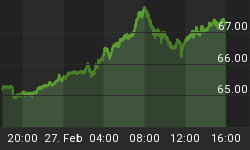
Special Guest: Ellen Brown, is the founder of the Public Banking Institute and the author of a dozen books and hundreds of articles. She developed her research skills as an attorney practicing civil litigation in Los Angeles. In the best-selling Web of Debt, she turned those skills to an analysis of the Federal Reserve and "the money trust." She showed how this private cartel has usurped the power to create money from the people themselves, and how we the people can get it back.
32 Minute VIDEO

Ellen Brown has written to popular books on banking, is the founder of the Public Banking Institute and ran for California State Treasurer in the last election. She knows a thing or two about banking. What she has to say is not pretty.
Banking is in Worse Shape
- Loans for small business is harder to get,
- Big Banks are lending less,
- Big Banks have more derivatives than ever with 98% controlled by the big 4,
- Small to Medium size banks are having more difficulties making loans because of Dodd-Frank and Basel III. (Rules which favor big banks).
The rules are effectively competitively disadvantaging the small to medium sized banks in favor of the banks who got us into the financial crisis in the first place and have the lobbyists to secure favorable advantages. It is the smaller to medium sized banks that have traditionally funded small business growth and innovation in America.
Stealth Bail-In Versus Bail-Out Provisions
In 2010 the congress moved to stop future bailouts but brought in "bail-ins". In the future if the big banks fail due to risky loans they will be forced to recapitalize themselves but with unsecured creditor funds. This means using depositor funds who are the largest unsecured creditor class of the banks. The public is generally unaware of this shift.
"Cyprus-style confiscation of depositor funds has been called the "new normal." Bail-in policies are appearing in multiple countries directing failing TBTF banks to convert the funds of "unsecured creditors" into capital; and those creditors, it turns out, include ordinary depositors. Even "secured" creditors, including state and local governments, may be at risk. Derivatives have "super-priority" status in bankruptcy, and Dodd-Frank precludes further taxpayer bailouts. In a big derivatives bust, there may be no collateral left for the creditors who are next in line.
Why Negative Nominal Bond Yields?
Ellen suggests that the reason we are seeing $5T in Sovereign Bonds now trading with negative nominal yields is because the larger banks need them for collateral in the Repo market. The Fed has reduced the availability of bonds and the banks need the bonds for leverage. They simply don't mind paying a small price to obtain the lending leverage.
Profits in Derivatives
As Citigroup CEO Chuck Prince so infamously cited prior to the 2008 Financial Crisis, "you have to get up and dance while the music is playing!" Today Ellen believes the pursuit of yields and use of derivatives is about short term profits with little regard to the longer term issues where depositors will be on the financial hook. The banks senior secured debt holders now receiving large interest fees will once again be protected. Shareholders, depositors and those lower on the capital structure will be the losers.
Other Subjects
- The secretive issues with the stealth TPP (Trans-Pacific Partnership),
- Campaign finance, big money and running for public office,
- A public bank solutions and the North Dakota model,
- Coming Infrastructure spending,
.... and much more in this 32 minute video.















